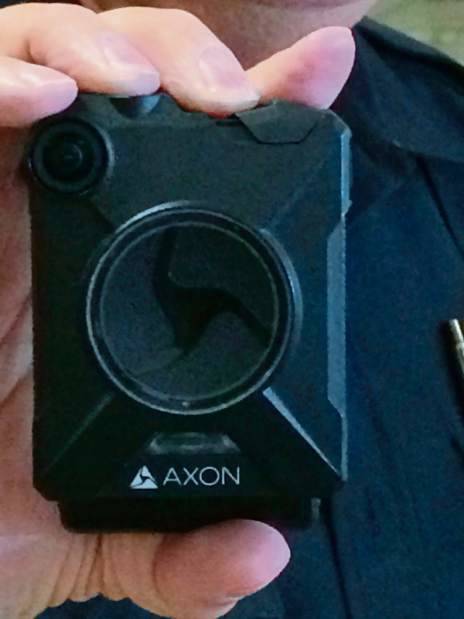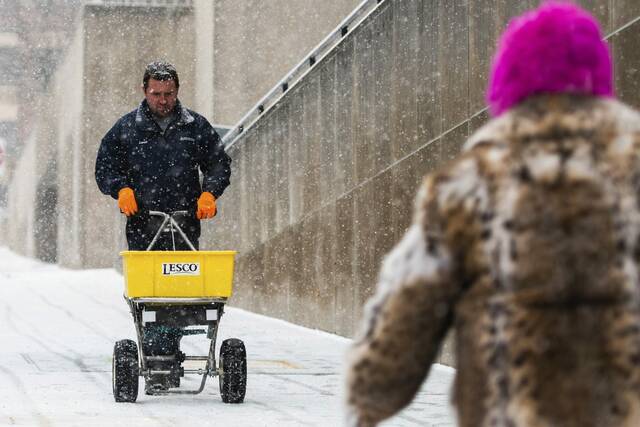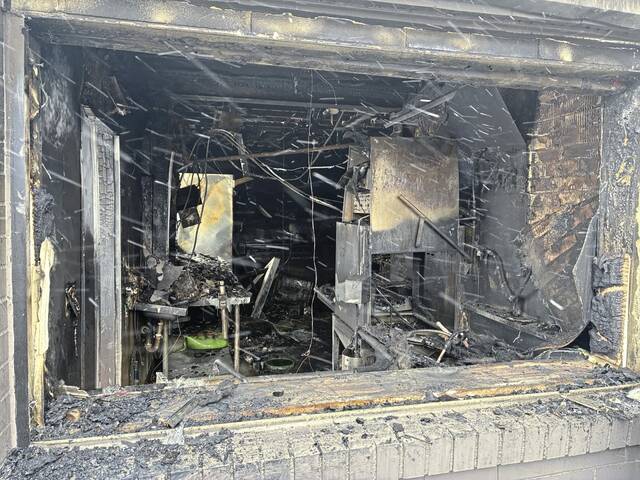With the increase in controversial and sometimes deadly encounters between law enforcement and citizens across the country, more local police departments in Allegheny and Westmoreland counties are looking to outfit officers with body cameras — but they are scrambling to pay for them.
“There’s no question that law enforcement needs to go in this direction as quickly as they possibly can,” said John T. Rago, a Duquesne University Law School associate professor who focuses on criminal justice.
It would be foolish for police departments to think they don’t need to outfit officers with body cameras, Rago said, as they promote the safety of officers and the public.
In an April 2018 report, the Police Executive Research Forum said more than one-third of the nation’s law enforcement agencies have body cameras and the equivalent of half the nation’s agencies plan to use them.
The use of body cameras has grown considerably since 2009. Body cameras “have the potential to transform policing for the better,” but there are “significant back-end costs” of maintaining, storing and sharing of a large amount of data, according to the report from the Washington, D.C.-based research group.
The median costs for small departments of 10 or fewer officers was about $4,000 a year per camera for video storage, but there also are long-term costs for maintaining and operating the cameras, the report said. Some body-worn camera companies charge about $1,100 a year per camera for data storage services, Rago said.
More law enforcement agencies in Pennsylvania have sought matching grants in the past two years from the Pennsylvania Commission on Crime and Deliquency to help pay for body cameras and the equipment to store videos, said spokeswoman Kirsten Kenyon.
When $1.1 million in federal and state funding for 50% matching grants for body cameras became available in September, 63 law enforcement agencies across the state submitted applications seeking $1.8 million in funds, according to the commission’s data.
Four departments in Allegheny County — Bellevue, Findlay, Green Tree and West Mifflin — and two in Westmoreland — North Huntingdon and Latrobe — were among the 38 departments landing $1.1 million in grants in two rounds of funding.
“I wish every officer had body-worn cameras. We fully support body cameras,” said Les Neri, president of the 11,000-member Pennsylvania Fraternal Order of Police.
Neri said he realizes that is a hard goal to reach, considering there are 1,100 departments in the state, many in small municipalities “that don’t have the money.”
With everything entailed in operating a body-worn camera program, “this is a burden for the small departments. It is not nearly as simple as it appears,” Rago said.
North Huntingdon’s plans
North Huntingdon will buy 20 body cameras and upgrade in-car video systems with 17 new cameras. The $134,000 cost, spread over five years, covers storage of the videos and replacement costs, as well as upgrades during the length of the contract, said Chief Robert Rizzo.
To help pay for the program, the township commissioners on Wednesday approved a $24,634 matching state grant. Money had been set aside in the township’s capital reserve account to fund the project this year, township Manager Jeff Silka said.
The cameras will enhance officer safety and provide accountability and transparency, Rizzo said. Officer microphones already are synced with the in-car camera system, the chief said.
“Our department is committed to providing outstanding public service, and we want to use every piece of law enforcement technology available to investigate crimes and provide public and officer safety,” Rizzo said. He anticipates having the system in place within a few months.
North Huntingdon Commissioner Ronald Zona, a retired state police trooper, favors the use of body cameras. It was a tool that wasn’t available to troopers when he was one.
“It think it’s a no-brainer for us to have it,” Zona said.
He said police video footage could solve police-citizen disputes before they reach the courts.
Latrobe seeking 15 cameras
Latrobe expects to have 15 body cameras for officers within the next few months, said Beth Straka, city community service officer.
“It will complement officers in the performance of their duties,” Straka said. “It’s for the safety of the officers and the public. It’s just another tool (for use) in the day of the life of an officer.”
Latrobe received a $16,765 grant from the state that was matched with money from the Westmoreland County District Attorney’s Office garnered through drug-case forfeitures. The money will cover the cost of officer training, computer servers and storage of the videos, Straka said.
“Everything is in one lump sum,” Straka said.
Sgt. Robert Derk is the only officer who wears a body camera because he works with the department’s K-9, Straka said. The city’s police department does not have in-car cameras, Straka said.
To obtain the funding, Straka said, a policy has to be approved by the crime commission’s justice department. The Latrobe Fraternal Order of Police, which represents the officers, will have to approve the policy, which must follow guidelines detailed by the crime and delinquency commission.
Such policies likely would include requirements for when the camera should be activated, such as during a traffic stop, or when it could be turned off, such as during routine patrol, Rago said. Some camera sytems automatically initiate the camera when the crusier’s lights are activiated, he noted.
Jeannette chief: We can’t afford it
For Jeannette police Chief Shannon Binda, the purchase and use of body cameras for city officers is not financially feasible.
In addition to the cost of the cameras, Binda said, there would be the cost of storing the videos. Officers would have to “back up” the video at the end of their workday, and it would have to be kept on file for an indefinite period.
“We’re just not financially able to do it,” Binda said.
Other departments
Penn Township police Chief John Otto said having body cameras for officers “is a tremendous benefit to law enforcement.”
“We have to find an income stream to fund it,” Otto said.
The department has a $4.35 million budget for 2021. To take on that extra cost, Otto said, it would have to eliminate an existing expenditure.
“I don’t think it will solve all the problems, but it is a tool to get the truth out.”
Western Pennsylvania’s largest police department, in Pittsburgh, has used body cameras since 2018, said Cara Cruz, a public safety department spokeswoman.
“It’s great for transparency for both the public and the officers. We’re a huge proponent” of body cameras for the 950-officer bureau, Cruz said.
In addition to providing accurate information for any fact-finder, Rago said he believes body cameras “may de-escalate a situation in terms of (possible) violence” because people will know they are being recorded.








